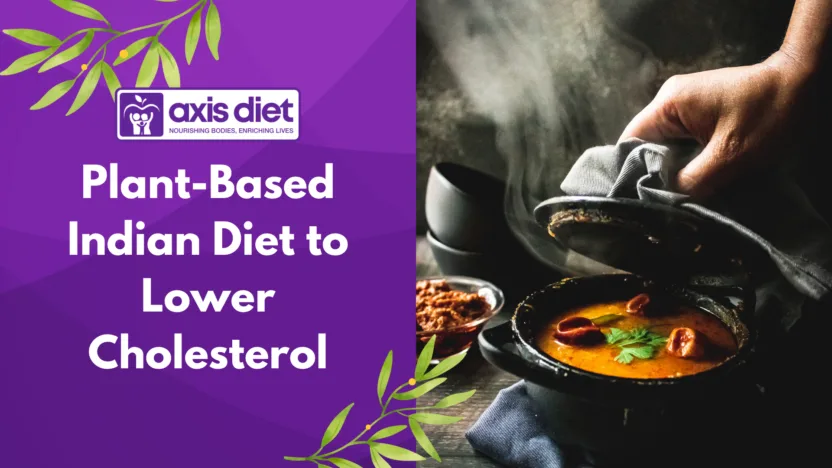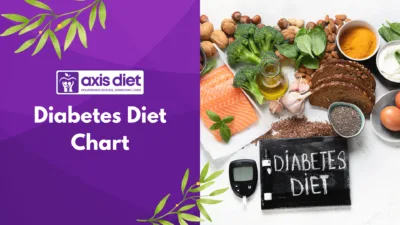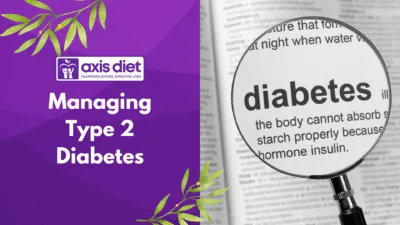A plant-based diet can significantly impact cholesterol levels, particularly within the rich culinary landscape of India. By focusing on whole, plant-derived foods, individuals can manage their cholesterol effectively while enjoying traditional flavors. This exploration delves into specific foods, meal ideas, and lifestyle adjustments that can promote heart health through a plant-based Indian diet.
Understanding Cholesterol and Heart Health
Understanding cholesterol is crucial for maintaining optimal heart health. Cholesterol is a waxy, fat-like substance found in every cell of the body. It is necessary for producing hormones, vitamin D, and bile acids that help digest fats. However, an imbalance of cholesterol levels can pose serious health risks.
There are two main types of cholesterol: low-density lipoprotein (LDL) and high-density lipoprotein (HDL). LDL is often referred to as “bad cholesterol.” When levels of LDL increase in the bloodstream, it can lead to the buildup of plaque in arteries. This can narrow the arteries and restrict blood flow, increasing the risk of heart disease and stroke.
On the other hand, HDL is known as “good cholesterol.” It helps remove LDL cholesterol from the arteries and transports it back to the liver for processing. Higher levels of HDL cholesterol can help protect against heart disease. Therefore, maintaining a healthy balance between LDL and HDL is critical.
Managing cholesterol levels is essential for preventing heart disease. Factors such as diet, exercise, weight, and genetics influence cholesterol levels. An unhealthy diet high in saturated and trans fats can lead to elevated LDL levels. Conversely, foods rich in fiber and healthy fats can support HDL cholesterol and lower LDL cholesterol levels.
Within the context of a plant-based Indian diet, certain food choices can significantly impact cholesterol management. Traditional Indian foods, such as legumes, whole grains, fruits, and vegetables, are naturally low in saturated fats and high in fiber. Ingredients like oats, lentils, and beans are excellent for lowering cholesterol.
Moreover, utilizing spices, such as turmeric and garlic, can provide additional cardiovascular benefits. Regular physical activity complements dietary choices, further supporting heart health. By combining a heart-healthy diet with an active lifestyle, individuals can effectively manage their cholesterol levels.
In summary, understanding cholesterol’s role in heart health is vital for making informed dietary choices. Plant-based diets can play a significant role in cholesterol management. Focusing on the right foods can lead to improved heart health and a reduced risk of heart disease. For further insights on effective dietary changes, consider reading about lowering cholesterol for better health.
The Benefits of a Plant-Based Diet
The adoption of a plant-based diet can lead to numerous health benefits, particularly in managing cholesterol levels, promoting weight maintenance, and enhancing overall heart health. When considering Indian cuisine, it becomes clear how easily one can incorporate these elements into daily meals.
One of the primary advantages of a plant-based diet is its ability to lower cholesterol levels. Plant foods are generally low in saturated fats and provide essential nutrients without unhealthy additives. Specifically, foods high in soluble fiber, such as legumes and oats, can significantly help reduce levels of low-density lipoprotein (LDL), commonly known as ‘bad cholesterol.’ Foods like dal and chana are staples in Indian households and are excellent sources of plant protein and fiber.
Managing weight is another critical aspect of heart health. A plant-based diet can facilitate weight loss and maintain a healthy weight more effectively. The high fiber content in fruits, vegetables, grains, and legumes can keep you feeling full, reducing the urge to overeat. Traditional Indian dishes, such as idli, upma, and sabzi, are nutrient-dense yet low in calories when prepared with minimal oil. Incorporating such dishes into your meals allows for satisfying eating without excess caloric intake.
The heart health benefits of a plant-based diet extend beyond cholesterol and weight management. Regularly consuming a variety of vegetables, fruits, and whole grains is associated with lower blood pressure and improved overall cardiovascular health. Foods like leafy greens, tomatoes, and citrus fruits are common in Indian cooking and are rich in antioxidants. These nutrients play a significant role in protecting the heart from oxidative stress, further enhancing cardiovascular health.
Moreover, the inclusion of spices like turmeric and ginger in many Indian dishes can also contribute to heart health. They contain anti-inflammatory properties that help in reducing inflammation in the body and thus positively affect the heart. Regular use of spices can transform ordinary meals into flavorful dishes while promoting health.
Adopting a plant-based diet can be a delicious endeavor, especially when considering the aromatic and diverse Indian cuisine. Those looking for effective ways to manage cholesterol can certainly benefit from integrating these principles into their everyday meals. To explore specific plant-based ingredients that lower cholesterol, consider visiting cholesterol-lowering Indian foods.
Key Ingredients for Lowering Cholesterol
To effectively manage cholesterol levels, incorporating certain plant-based foods into the Indian diet can prove beneficial. Various ingredients not only contribute to heart health but also play an integral role in traditional meals. Here are key ingredients commonly found in Indian diets that can help lower cholesterol:
- Legumes: These plant-based proteins, including lentils, chickpeas, and kidney beans, are rich in soluble fiber. Soluble fiber binds to cholesterol in the intestines, aiding in its removal from the body. Eating legumes regularly can significantly decrease LDL cholesterol levels.
- Whole Grains: Foods such as brown rice, quinoa, and whole wheat are packed with nutrients and fiber. Whole grains can lower cholesterol and improve overall heart health by enhancing the body’s ability to metabolize fats. The fiber content in whole grains assists in reducing cholesterol absorption.
- Nuts and Seeds: Almonds, walnuts, and flaxseeds are excellent sources of healthy fats. They contain omega-3 fatty acids, which aid in reducing triglycerides and inflammation in the body. Regular consumption of nuts has been linked to lower cholesterol levels and improved cardiovascular health.
- Fruits: Apples, pears, and berries are full of pectin, a type of soluble fiber that can lower LDL cholesterol. Citrus fruits like oranges and pomegranates also contain compounds that help lower cholesterol and promote heart health. Incorporating a variety of fruits into meals provides essential vitamins and antioxidants.
- Vegetables: Leafy greens, such as spinach and kale, as well as cruciferous vegetables like broccoli and cauliflower, are not only low in calories but high in fiber and antioxidants. Their nutrient profiles contribute to lower cholesterol levels and better overall health.
The science behind these foods highlights the importance of a plant-based diet rich in fiber, healthy fats, and essential nutrients. Research indicates that incorporating these foods can lead to substantial improvements in cholesterol levels, reducing the risk of heart disease. Additionally, adopting a diet rich in these ingredients aligns seamlessly with traditional Indian cooking practices, facilitating a flavorful and nutritious approach to heart health.
For those looking to explore more about heart-healthy ingredients, additional insights can be found at cholesterol-lowering Indian foods.
Traditional Indian Dishes for Heart Health
Traditional Indian cuisine is rich in flavors and diverse ingredients, making it perfect for a heart-healthy, plant-based diet. Incorporating spices and cooking methods that enhance flavor while maintaining nutritional benefits is key to preparing dishes that support heart health. Here are some traditional recipes that utilize heart-healthy ingredients.
- Dal Tadka: This lentil dish is a staple in many Indian households. Cook moong dal or toor dal, which are excellent sources of protein and fiber. Tadka with cumin, garlic, and turmeric elevates the flavor without adding unhealthy fats. Serve it with brown rice or whole wheat roti for a wholesome meal.
- Palak Paneer: Swap traditional paneer with a healthier version made from low-fat milk or even substitute with tofu. Use fresh spinach, an excellent source of antioxidants. The minimal use of spices like cumin and coriander can enhance the taste while keeping the dish light.
- Chana Masala: Chickpeas are packed with soluble fiber, known for lowering cholesterol levels. Prepare chana masala with tomatoes, onions, and spices like garam masala and turmeric. Serve it with whole grain chapatis for a filling meal.
- Vegetable Sambar: This South Indian specialty is a lentil-based stew with assorted vegetables. Rich in fiber and nutrients, sambar often includes carrots, green beans, and eggplant. The tamarind and spices like mustard seeds add a tangy flavor without adding calories.
- Raita: Made from yogurt and fresh vegetables like cucumber or carrots, raita is a cooling side dish. Use homemade yogurt to boost probiotics, promoting gut health. Season it with roasted cumin powder for an added flavor kick.
- Stuffed Parathas: Opt for whole wheat flour for making parathas stuffed with heart-healthy fillings such as mashed sweet potatoes or spinach. These parathas can be enjoyed with a dollop of homemade yogurt.
- Besan Chilla: A savory pancake made from gram flour, besan chilla is nutritious and high in protein. Load it with chopped vegetables for extra nutrients and serve it hot with green chutney.
Utilizing spices such as turmeric and coriander in these dishes offers not only flavor but also health benefits. They help in reducing inflammation and improving heart health. For more insights on low cholesterol diets, consider exploring cholesterol-lowering Indian foods. Embracing these dishes can contribute positively to a heart-healthy lifestyle.
Meal Planning for Success
Meal planning using plant-based ingredients can significantly lower cholesterol levels. A thoughtfully prepared meal plan balances nutrition, flavor, and heart health. Each meal should be a tapestry of diverse foods that not only cater to your taste buds but also nurture your cardiovascular system.
To create a successful week-long meal plan, start by considering the following essential elements:
- Preparation: Dedicate some time for meal prep. Chop vegetables, cook grains, and maybe batch-cook legumes. This approach saves time and ensures you have the right ingredients on hand.
- Portion Sizes: Use smaller plates to control portion sizes and avoid overeating. A balanced plate might include half vegetables, a quarter whole grains, and a quarter legumes.
- Nutrient Balance: Incorporate whole grains, fruits, vegetables, and legumes in every meal. Aim for a variety of colors and types to ensure a rich nutrient profile.
For breakfast, consider starting with oats cooked with almond milk, topped with fresh fruits and nuts. This combination is high in fiber and healthy fats. You can prepare overnight oats for convenience, making mornings smoother.
Lunch might include a hearty vegetable curry paired with quinoa or brown rice. Beans added to your curry not only enhance its flavor but also provide protein and fiber, essential for heart health. Serve this with a side of mixed green salad drizzled with lemon juice and a sprinkle of seeds.
Dinner could be a stir-fried mix of seasonal vegetables like bell peppers, broccoli, and spinach, with tofu or chickpeas for protein. Use spices generously; turmeric and cumin are known for their anti-inflammatory properties. Opt for a light whole grain like millet or jowar to round out the meal.
Snacks are often overlooked, yet they play a crucial role in maintaining energy levels and keeping cholesterol in check. Consider roasted chickpeas, fresh fruit, or hummus with vegetable sticks for healthy snacking options.
Remember to drink plenty of water throughout the day. Herbal teas can also be a great addition, especially those with heart-healthy properties. Ensuring adequate hydration aids digestion and overall health.
For more insights into heart-healthy meals, consider exploring this article which provides additional recipes and tips. Committing to a plant-based diet can significantly impact cholesterol levels, enhancing overall well-being.
Lifestyle Changes to Support Heart Health
Adopting a plant-based diet is a significant step in lowering cholesterol. However, to maximize its benefits, integrating broader lifestyle changes is essential. Physical activity, stress management, and quality sleep can greatly enhance heart health alongside dietary adjustments.
Regular physical activity plays a crucial role in maintaining optimal cholesterol levels. Aim for at least 150 minutes of moderate exercise each week. This can include activities such as brisk walking, cycling, or dancing. Incorporating strength training exercises twice a week can further benefit heart health by improving muscle mass and metabolism. Consistency is the key; small daily efforts can accumulate into significant health improvements over time.
Engaging in physical activities has additional benefits, such as promoting better mood and reducing feelings of anxiety. Activities like yoga and tai chi not only provide physical benefits but also encourage mindfulness. This can lead to reduced stress levels, which is vital for maintaining heart health.
Another important aspect is stress management. Chronic stress can lead to elevated cholesterol levels and other heart-related issues. Implement techniques that promote relaxation and mental well-being. These may include:
- Mindfulness meditation: Taking just a few minutes a day for focused breathing can help lower stress.
- Deep breathing exercises: Practicing deep breathing techniques can provide immediate stress relief.
- Time for hobbies: Engaging in activities you love can be a fantastic stress buster.
Additionally, maintaining a consistent sleep schedule is equally important for heart health. Aim for 7-9 hours of quality sleep each night. Poor sleep has been linked to increased cholesterol levels and higher risks of heart disease. Create a soothing bedtime routine to improve sleep quality. Consider minimizing screen time before bed and making your sleep environment comfortable.
Quality sleep and effective stress management can enhance the overall effectiveness of a plant-based diet. These lifestyle changes foster a holistic approach towards cholesterol management. While dietary modifications are foundational, nurturing your body through exercise, managing stress, and ensuring adequate rest can bring optimal results.
With these combined lifestyle choices, achieving heart health becomes an attainable goal. This complements the plant-based meal planning discussed previously and lays the groundwork for further personalized dietary adjustments in the upcoming chapter. For a deeper dive into these aspects of heart health, consider exploring additional resources on workout for stress relief.
Getting Started with Professional Guidance
Transitioning to a plant-based diet can be a life-changing decision, especially for individuals looking to lower cholesterol levels. However, making this shift can feel overwhelming without the right guidance. It is highly recommended to seek professional assistance from dietitians or nutritionists who specialize in plant-based nutrition. These experts can provide personalized advice tailored to your unique health needs and lifestyle, making the transition smoother and more effective.
When starting this journey, consider the following benefits of professional guidance:
- Personalized Meal Planning: A nutritionist can create meal plans that meet your nutritional requirements while considering your food preferences.
- Nutrition Education: Understanding the fundamentals of a plant-based diet, such as essential nutrients and food combinations, will empower you to make informed choices.
- Accountability and Support: A professional can help keep you motivated and guide you in addressing potential challenges during your transition.
- Assessment of Individual Health Needs: Everyone has different health concerns. A professional can help tailor a plan suited to your health status, be it diabetes, hypertension, or high cholesterol.
In addition to seeking professional advice, it is crucial to adopt a holistic dietary approach. This means recognizing that a plant-based diet should not just focus on eliminating animal products, but also embrace a variety of nutrient-dense foods. Incorporating a colorful spectrum of fruits, vegetables, whole grains, legumes, nuts, and seeds will provide essential vitamins, minerals, and antioxidants that play a vital role in heart health.
Furthermore, it’s important to understand that the journey does not end with just diet changes. A professional can help integrate other lifestyle aspects like regular physical activity, stress management techniques, and proper sleep hygiene, which are essential for optimizing overall heart health. Each of these factors contributes to a comprehensive strategy to manage cholesterol levels effectively.
For those interested in exploring this holistic approach further, various resources offer invaluable information on plant-based nutrition. For example, consider reading about lowering cholesterol and better health. Such resources can provide additional insights into combining dietary changes with lifestyle modifications.
Ultimately, transitioning to a plant-based diet is a personal journey. Having professional support can make this transition smoother and sustainable, paving the way for improved health outcomes over time.
Final words
Adopting a plant-based Indian diet is a proactive approach to lowering cholesterol and enhancing overall health. By embracing nutritious foods and traditional recipes, individuals not only improve their heart health but also enjoy diverse and flavorful meals. Explore personalized dietary options to fit your lifestyle and improve your well being.
The content provided in this blog post is intended for general knowledge and informational purposes only. It should not be considered a substitute for professional medical advice, diagnosis, or treatment. For personalized health recommendations tailored to your individual needs, we highly encourage you to connect with our certified clinical dietitians. Visit us at Axis Diet Consulting to schedule a consultation and take the first step toward your health journey!





